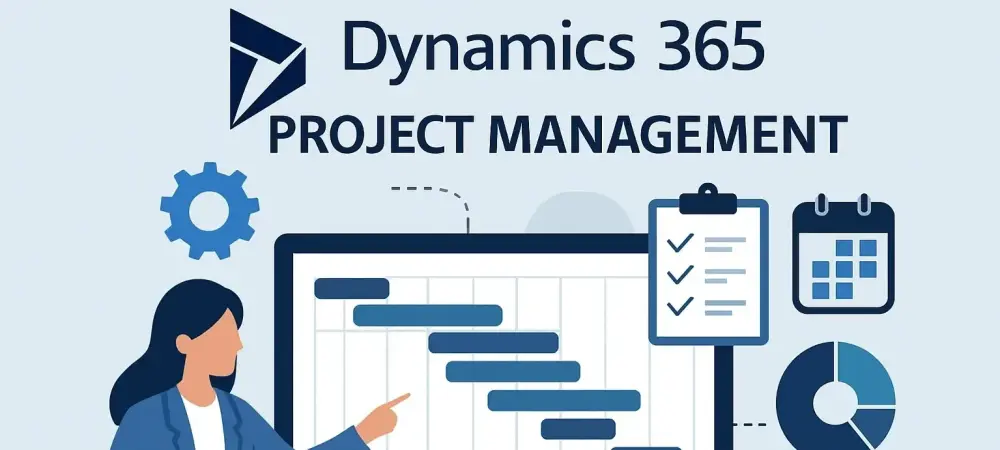In today’s fast-paced business world, efficient project management is crucial. Dominic Jainy, a seasoned expert in artificial intelligence, machine learning, and blockchain, offers insights into how modern tools like Microsoft Dynamics 365 can revolutionize project management practices, ultimately improving client satisfaction and project outcomes. Throughout this interview, Dominic discusses the importance of cohesive and seamless project management solutions, detailing how Dynamics 365 addresses common challenges and supports various phases of the project lifecycle, from planning to budgeting.
Why is efficient project management crucial in today’s business environment?
Efficient project management is fundamental for any business looking to stay competitive in today’s volatile market. It goes beyond mere scheduling and planning; it includes resource management, budget control, team coordination, and real-time project monitoring. Modern businesses face challenges such as shorter timelines, complex project requirements, and increased need for transparency, which can significantly impact a project’s outcome and client satisfaction if not managed well.
How does Microsoft Dynamics 365 contribute to project management efficiency?
Microsoft Dynamics 365 is designed to streamline project management by offering comprehensive features for resource management, cost tracking, and real-time analytics. Its primary advantage is in optimizing every phase of project management—helping project managers track progress, manage resources more efficiently, and monitor budgets with detailed and customizable dashboards.
What are the common challenges businesses face before implementing Dynamics 365?
Before implementing Dynamics 365, businesses often struggle with disparate tools that hinder seamless project execution. This leads to delayed project phases like planning and execution due to poor visibility and lack of integration. Siloed updates also create challenges in maintaining consistent information flow, ultimately affecting project efficiency.
What gains can businesses expect post-implementation of Dynamics 365?
Once Dynamics 365 is in place, businesses can expect significant improvements in resource allocation, with tools that help optimize personnel and material usage. Automated time and expense logging reduces manual errors and enhances project tracking, while real-time updates ensure transparency and cohesion across teams.
How does Dynamics 365 assist in financial management and budgeting?
Microsoft Dynamics 365 offers robust tools for tracking expenses and financial reporting. These tools allow for real-time tracking and a clearer view of a project’s financial health. Real-time expense tracking helps project managers keep budgets under control and swiftly adapt to changing financial circumstances.
Can you explain the role of real-time analytics and reporting in project management with Dynamics 365?
Real-time analytics and reporting are crucial for mitigating project risks and ensuring informed decision-making. Dynamics 365’s customizable dashboards provide valuable insights into KPIs and project metrics, helping project managers identify potential issues early and adjust resources to maintain project momentum.
How does Dynamics 365 ensure scalability and flexibility in project management?
Dynamics 365’s adaptability allows it to cater to different project sizes and complexities. Its scalable nature makes it suitable for small projects and large-scale enterprise initiatives, giving businesses the flexibility to tailor the tool to their unique requirements.
In what ways does Dynamics 365 enhance operational efficiency?
Operational efficiency is greatly enhanced with Dynamics 365’s built-in dashboards and KPIs, which streamline decision-making processes. Data transparency allows for more cohesive project management, as teams have access to consistent and reliable information that drives data-centric decisions.
How does Dynamics 365 integrate with other Microsoft tools and what benefits does this offer?
Dynamics 365 integrates seamlessly with tools like Microsoft Teams, Outlook, Excel, and Power BI, facilitating smooth collaboration and communication within existing work environments. This integration boosts productivity by reducing the friction of switching between different applications and allows for smoother data analysis and communication.
What steps should a business take to effectively implement Dynamics 365 for project management?
To effectively deploy Dynamics 365, businesses should start by outlining clear project goals and choosing the right features that align with their needs during the planning phase. Ensuring a smooth transition involves proper training and engagement with teams to maximize integration benefits, making sure they are prepared to leverage the platform’s full potential.
Do you have any advice for our readers?
Absolutely. Embrace technology for your project management needs, but always prioritize understanding how these tools fit into your existing processes. Engage with your teams during these transitions, and ensure they are equipped to adapt to new systems that will eventually streamline your operations and enhance client satisfaction.

